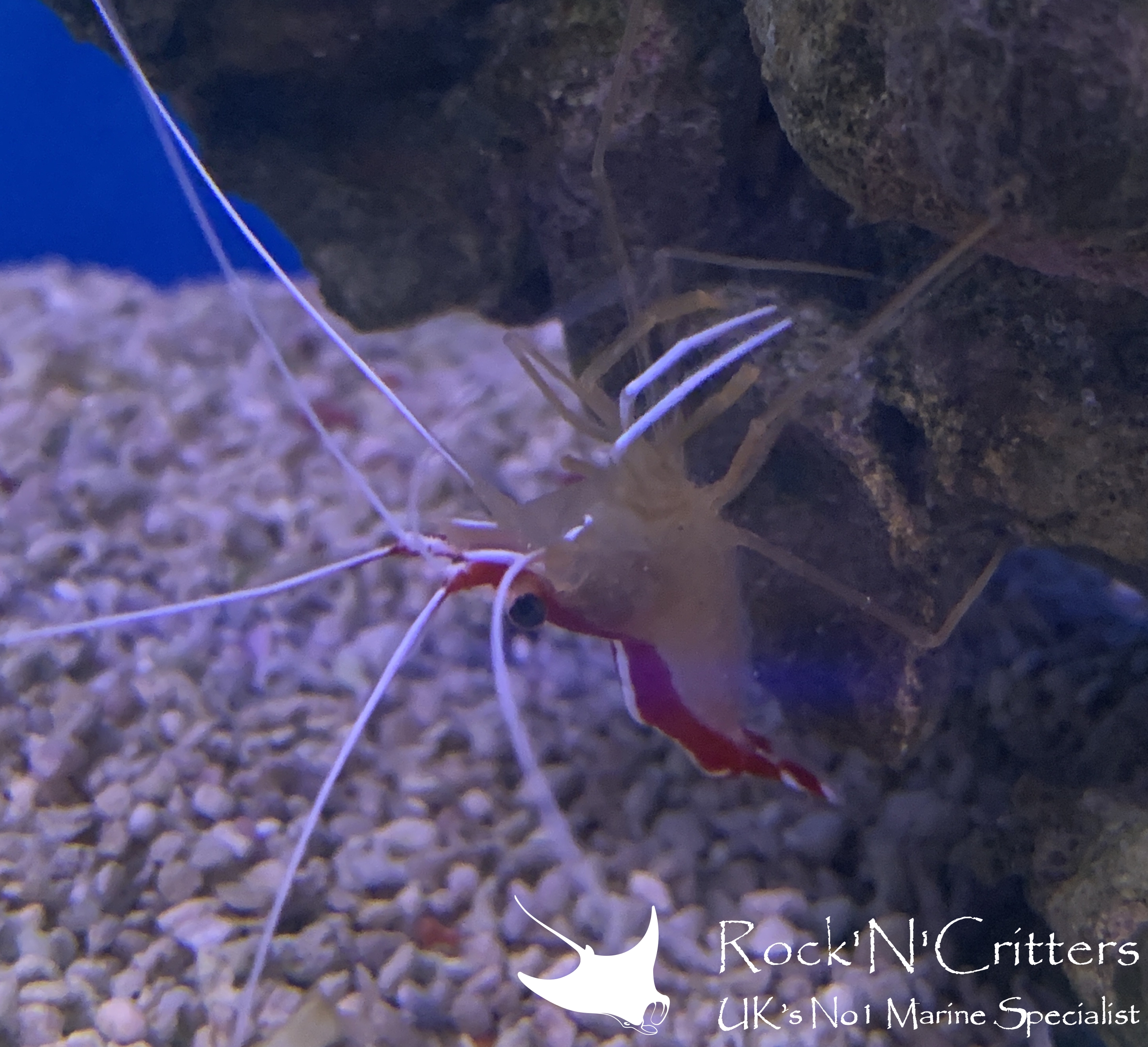
What is a Clean Up Crew? What does it do? Do I need one? What makes up a Clean Up Crew? Let's have a quick run through and a starter for 10 in the world of the Clean Up Crew (CuC).
Just like in natural marine environments, keeping an aquarium clean is crucial for the health and longevity of its inhabitants. Enter the unsung heroes of the aquarium world: the Clean Up Crew. These diligent creatures play a vital role in keeping the aquarium ecosystem in balance by consuming detritus, algae, and other organic waste, thus helping to maintain water quality and overall tank health.
What is a Clean Up Crew?
A Clean Up Crew crew in the context of marine aquariums refers to a group of invertebrates and small fish species carefully selected and introduced into the tank to assist with waste management. These critters work tirelessly to clean up uneaten food, algae, decaying matter, and other organic debris that accumulates in the aquarium.
Common components of a Clean-Up Crew:
Snails: Snails are among the most common members of a clean-up crew. They have an insatiable appetite for algae, which helps keep the tank glass and decorations clean. Popular snail species include turbo snails, cerith snails, and nassarius snails.
Hermit Crabs: Hermit crabs are scavengers that help clean up excess food and detritus from the aquarium substrate. They also consume algae and dead organisms, contributing to the overall cleanliness of the tank.
Shrimp: Certain species of shrimp, such as the peppermint shrimp and the cleaner shrimp, are valuable additions to a clean-up crew. These shrimp not only consume leftover food and algae but also help clean other fish by removing parasites from their bodies.
Starfish: Some species of small starfish, like the sand-sifting starfish, play a role in aerating and cleaning the substrate by sifting through the sand in search of food particles and detritus.
Sea Cucumbers: Sea cucumbers are excellent detritivores, meaning they consume organic matter found in the substrate. They help prevent the buildup of debris and contribute to nutrient cycling within the aquarium.
Benefits of a Clean-Up Crew:
Waste Management: By consuming leftover food, algae, and decaying matter, the clean-up crew helps prevent the accumulation of organic waste in the aquarium, which can lead to poor water quality and harmful spikes in ammonia and nitrite levels.
Algae Control: Many members of the clean-up crew are voracious algae eaters, helping to keep algae growth in check and maintain a clean and visually appealing aquarium environment.
Natural Balance: Introducing a diverse clean-up crew mimics the natural processes found in marine ecosystems, promoting a healthy balance of microorganisms and nutrient cycling within the aquarium.
Reduced Maintenance: A well-established clean-up crew can significantly reduce the need for manual cleaning and maintenance tasks, such as algae scraping and substrate vacuuming, saving time and effort for aquarium enthusiasts.
Do I need one:
It is advisable that you do have a clean up crew as they provide a valuable service in terms of cleaning up detritus and helping to establish a balance. That being said, a common misconception is that a Clean Up Crew is the first thing you should add but if there's nothing for the Clean Up Crew to clean up then adding them early can be premature. Clean Up Crew are good to be added alongside or not long after your first fish and its worth building you Crew over time. Add certain Crew members based on the service they provide and what you need. If you want the sand bed to be turned over a bit consider some nassarius snails or a sea cucumber. If you have some algae you want to get on top of then consider a tuxedo urchin and so on and so on. Research is key or speak to the staff in store, discuss what you're trying to achieve or the problem you're facing and they can provide some advice.
Now, a quick caveat to 'everyone should have a Crew'. If you have a predator tank or are keeping fish which given half the chance will have a go at eating small inverts then you want to consider your Clean Up Crew carefully. You may still be able to keep some but maybe not others. Research is key! Also if you're keeping a species only tank, make sure everything is compatible before adding.
In conclusion, keeping and maintaining a clean and healthy environment is essential for the well-being of our marine aquariums. A diverse and well-chosen clean-up crew can be instrumental in achieving this goal by efficiently managing waste, controlling algae growth, and contributing to the overall balance of the aquarium ecosystem. Whether you're a seasoned hobbyist or just starting out, investing in a reliable clean-up crew is a crucial step towards creating a thriving marine aquarium that's both visually stunning and ecologically sustainable.